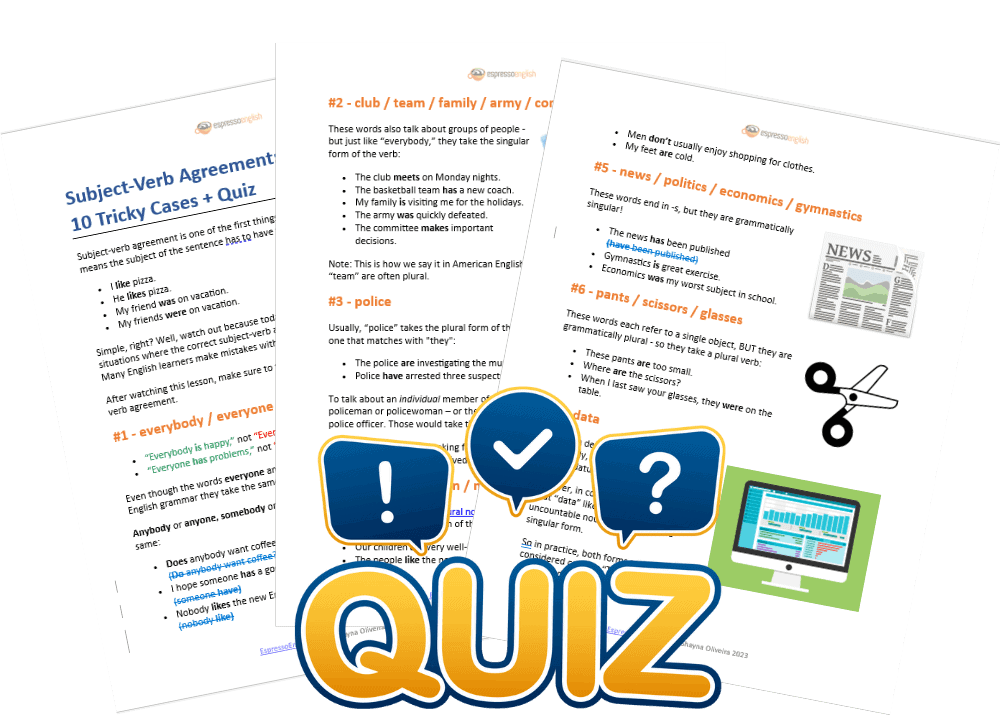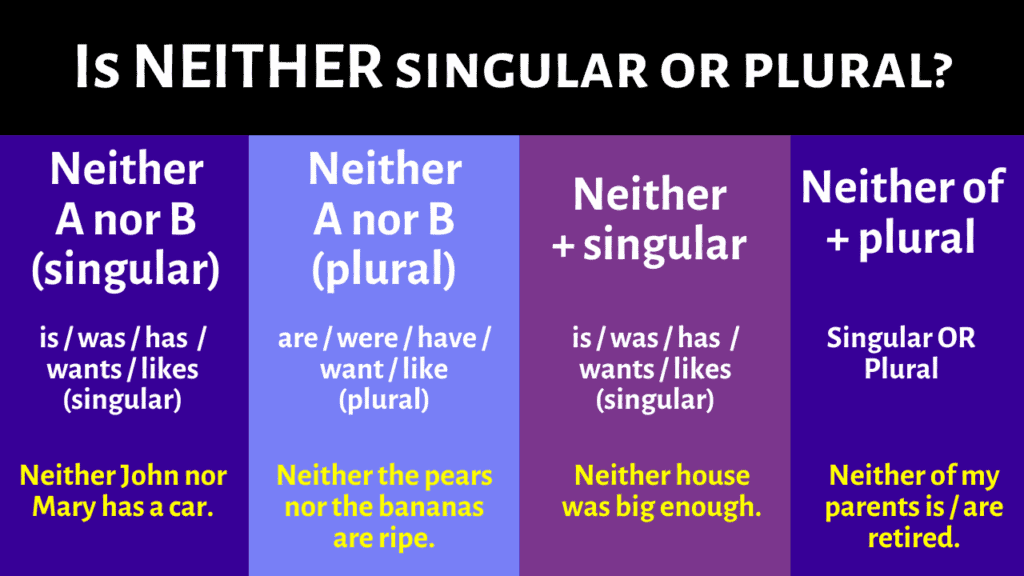

Subject-verb agreement is one of the first things you learn in English class. It means the subject of the sentence has to have the correct verb form:
Simple, right? Well, watch out because today we’ll look at 10 tricky cases, some situations where the correct subject-verb agreement might not be so obvious! Many English learners make mistakes with these, so pay close attention.
After taking this lesson, make sure to try the quiz to test yourself on subject-verb agreement.

Even though the words everyone and everybody refer to multiple people, in English grammar they take the same verb form as he, she, or it.
Anybody or anyone, somebody or someone, and nobody or no one are the same:
These words also talk about groups of people – but just like “everybody,” they take the singular form of the verb:
Note: This is how we say it in American English. But in British English “family” and “team” are often plural.
 in American English, and plural in British English" width="399" height="295" />
in American English, and plural in British English" width="399" height="295" />
Usually, “police” takes the plural form of the verb, the same one that matches with “they”:
To talk about an individual member of the police, we can say policeman or policewoman – or the gender-neutral term police officer. Those would take the singular form:
These words are irregular plural nouns (nouns that are not formed by adding -s) and they take the plural form of the verb:
These words end in -s, but they are grammatically singular!

These words each refer to a single object, BUT they are grammatically plural – so they take a plural verb:

There is a debate about the word “data”! Technically, data is plural (the singular form is “datum”). However, in common usage, people often treat “data” like “information” – as an uncountable noun, which takes the singular form.
So in practice, both forms are essentially considered correct: “The data is accurate” and “The data are accurate.”

Whether we use a singular verb or plural verb depends on what comes immediately after it:

“Neither” refers to two things, and it means “not one and not the other one” – so should we use a singular or plural verb after it? Well, we have a few different structures with “neither”:
Technically, neither goes with a singular verb, and this is how we use it with the first two sentence structures:
However, when we have the sentence structure “Neither of + plural,” or “Neither A nor B” when those items are plural, then many people use the plural verb:

Whether we use a singular or plural verb form depends on what follows them! The verb always matches the singular or plural noun immediately before it. Check out these examples:
Now you know how subject-verb agreement works in some of these more advanced cases! Next, go ahead and download the lesson PDF and try the quiz to test yourself on subject-verb agreement in these tricky situations.
If you want to take your English grammar to the next level and really master the advanced details of the language, come join my Advanced English Grammar Course – it will help you understand grammar easily and use it correctly and confidently in your own English.